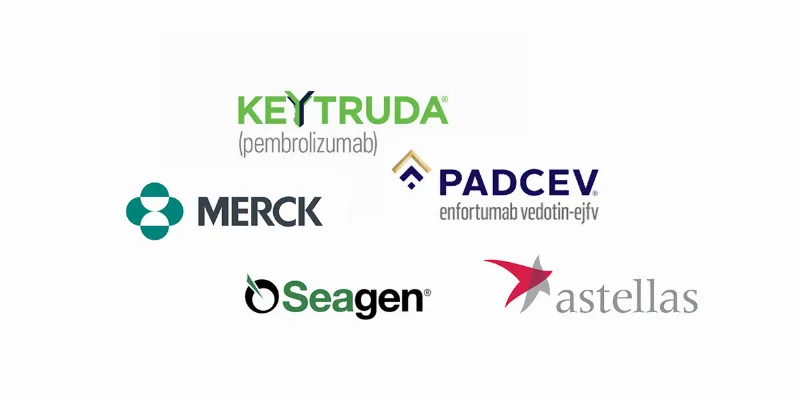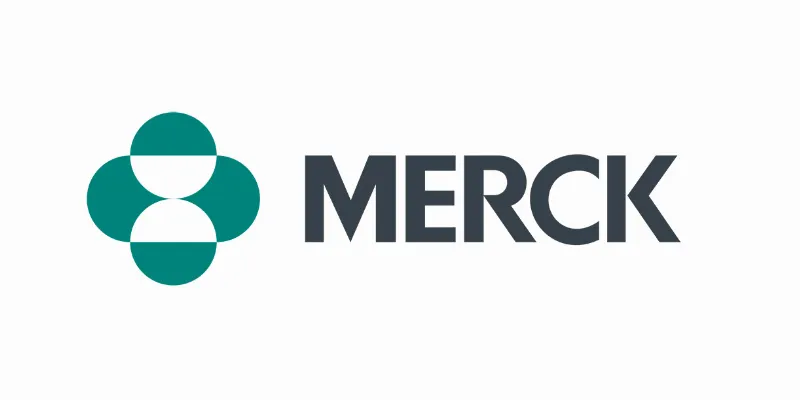FDA Grants Priority Review to Keytruda & Padcev Combination for Urothelial Cancer

1 December 2023
Merck announced that the FDA has granted priority review to its innovative combination therapy, Keytruda and Padcev, for treating advanced urothelial carcinoma. This follows the KEYNOTE-A39 trial's encouraging findings, demonstrating marked improvements in patient survival compared to conventional chemotherapy.
In a significant development for urothelial carcinoma treatment, the U.S. Food and Drug Administration (FDA) has granted priority review for the use of Keytruda (pembrolizumab; Merck) in combination with Padcev (enfortumab vedotin-ejfv; Astellas Pharma and Seagen) in treating adult patients with locally advanced or metastatic urothelial carcinoma. This groundbreaking step is based on promising results from two major clinical trials, EV-302 and KEYNOTE-A39.
The review, conducted under the FDA's RTOR program, aims to expedite access to potentially life-extending treatments for patients battling this challenging form of cancer. This move marks a key step in the ongoing collaboration between Merck, Seagen, and Astellas as they continue to explore the efficacy of the Keytruda/Padcev combination across various stages of urothelial cancer.
“The FDA’s acceptance of this application for priority review, as well as under the RTOR program, underscores the urgency to bring this treatment option that has demonstrated an OS benefit over chemotherapy to more patients with locally advanced or metastatic urothelial carcinoma,” said Dr. Eliav Barr, Senior Vice President and CEO, Merck Research Laboratories. “We look forward to working closely with the FDA to provide this important option to patients as quickly as possible.”

A New Horizon in Urothelial Carcinoma Treatment
Urothelial carcinoma, a predominant form of bladder cancer, has long relied on chemotherapy as the standard treatment. However, the recent FDA decision signals a paradigm shift, offering new hope to patients with locally advanced or metastatic forms of this disease. It is a prevalent illness, with an estimated 82,290 Americans diagnosed in 2023 alone.
The focus of this advancement is the combination of Padcev, an antibody-drug conjugate, and Keytruda, an anti-PD-1 therapy. The synergy of these drugs targets the cancer more effectively than traditional chemotherapy, as evidenced by the results of the EV-302 and KEYNOTE-A39 trials.
Dr. Roger Dansey, M.D., President of R&D at Seagen, expressed his optimism, saying, “Through our clinical development program, data have consistently shown the impact of combining enfortumab vedotin with pembrolizumab for advanced bladder cancer. FDA’s acceptance of our application is a critical step in our work as we seek to deliver this combination to more patients who currently have few treatment options at advanced stage.”
Groundbreaking Clinical Trial Results
The EV-302 trial, a collaborative effort between Astellas Pharma, Seagen Inc., and Merck, involved 886 patients. The study showed that the combination therapy significantly extended overall survival (OS) and progression-free survival (PFS) compared to chemotherapy.
Dr. Ahsan Arozullah, M.D., Head of Oncology Development, Astellas, said, “We look forward to FDA’s review of this application, which, if approved, will convert the accelerated approval of the combination based on results from the EV-103 study to standard approval for all first-line locally advanced or metastatic urothelial cancer patients, expanding indication to cisplatin eligible patients. These patients have a critical need for innovative new therapies, as chemotherapy has been the standard of care for over 30 years.”
Key findings from the EV-302 trial
A median OS of 31.5 months for patients treated with the combination therapy, compared to 16.1 months for those on chemotherapy.
A 53% reduction in the risk of death and a 55% reduction in the risk of disease progression or death, underscoring the efficacy of this new treatment approach.
The KEYNOTE-A39 trial further reinforced these results, showing consistent benefits across various patient subgroups, including those with different levels of PD-L1 expression and liver metastases.
Implications for Urothelial Carcinoma Patients
This FDA review is not just a procedural step; it's a beacon of hope for patients with advanced urothelial cancer. For over three decades, chemotherapy has been the mainstay of treatment, often with limited success and considerable side effects. The new therapy offers a more targeted approach, with the potential for improved outcomes and quality of life.
The FDA's decision by May 9, 2024, will be pivotal. If approved, this treatment could become the new standard for first-line therapy in advanced urothelial carcinoma, marking a significant advance in oncological care. Furthermore, this development is part of a broader shift in cancer treatment towards personalized, targeted therapies, moving away from the one-size-fits-all approach of traditional chemotherapy.
In conclusion, the FDA's priority review of this novel combination therapy is a promising step forward in the fight against urothelial carcinoma. It represents the culmination of rigorous clinical research and a testament to the potential of collaborative pharmaceutical efforts in advancing cancer treatment.
About KEYNOTE-A39 (EV-302)
The KEYNOTE-A39 trial is an open-label, randomized, controlled Phase 3 trial evaluating KEYTRUDA plus enfortumab vedotin compared to chemotherapy (gemcitabine plus cisplatin or carboplatin) for the treatment of patients with previously untreated la/mUC. The trial enrolled patients who may or may not be eligible for treatment with cisplatin-based chemotherapy, regardless of PD-L1 status. The dual primary endpoints are PFS as assessed by blinded independent central review (BICR) according to Response Evaluation Criteria in Solid Tumors (RECIST) v1.1 and OS. Secondary endpoints include objective response rate (ORR) per RECIST v1.1 by BICR, time to pain progression and duration of response per RECIST v1.1 by BICR.











Comments
No Comments Yet!